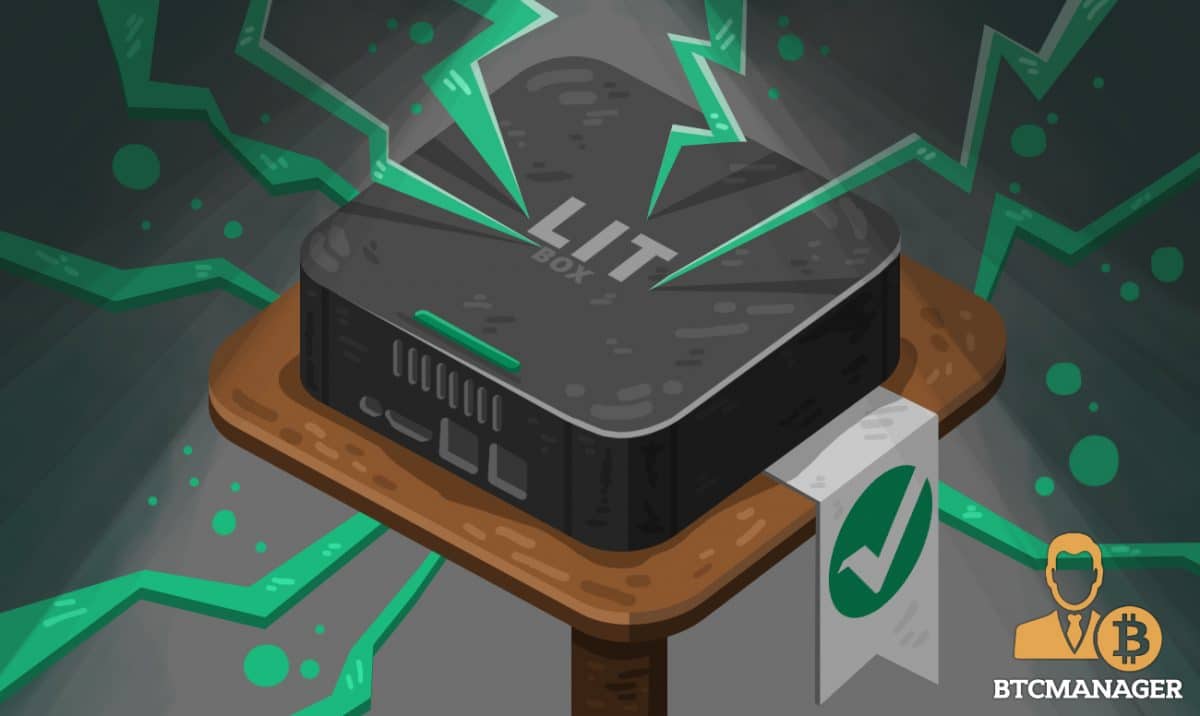Vertcoin Developer Proposes Hardware Device for Lightning Network

James Lovejoy, the lead developer of Vertcoin, recently spoke at the MIT Bitcoin Expo 2018, held March 18, on the subject of bitcoin’s upcoming Lightning Network and the technical challenges it may face once fully rolled out. During his presentation, he also explained how a new forthcoming hardware-based project, named Litbox, can potentially assist in the successful deployment of the network.
James Lovejoy is an undergraduate researcher at DCI and has been the lead developer of Vertcoin cryptocurrency ever since it was code forked from Litecoin in 2014. He said that with Litbox, “users can be their own banks as they can conveniently share the same wallet across multiple devices.” Litbox, expected to launch in the second half of 2018, will provide support for bitcoin, ether, and vertcoin.
The Lightning Network was touted as a potential solution to the bitcoin blockchain scalability debate by its developers, Joseph Poon and Thaddeus Dryja. The white paper proposed the setup of an off-chain decentralized system for enabling peer-to-peer transactions. An alpha version of the network was released in January 2018.
Currently, the Bitcoin blockchain has a block size limit of 1MB, which makes it difficult to handle the transaction rate of established payment systems. Coupled with the fact that bitcoin has recently surged in popularity and usage, this results in increased transfer time and high transaction costs.
Lightning Network Overview
The Lightning Network works by creating a network of micropayment channels. Any two or more nodes in the blockchain can open a bi-directional, peer-to-peer communication channel between them. The participating accounts can then make bitcoin transactions back and forth as long as the channel is active. All transactions are initially recorded off the blockchain, and once the channel is closed by either party, only the final closing balances of both the nodes are recorded.
This approach ultimately reduces the number of transactions that have to be processed on the blockchain. Lightning Labs, the company developing the network, says that with fewer transactions to validate, there will be a proportional decrease in overall transaction costs as well. Simply put, the Lightning Network helps to speed up transactions and reduce costs considerably.
Lead Vertcoin Developer Unveils Litbox
However, there are also some major risks associated with the implementation of the Lightning Network. If the parties involved in the transaction do not ensure sufficient safeguards, they could risk losing their money. Furthermore, when a payment is made within a channel, it could result in the linking of the participants’ IP addresses, which is a potential privacy issue.
Speaking at the forum, James Lovejoy said:
“Litbox is a small plug and play hardware device that will connect to a router. It will be online and can be accessed remotely, thus allowing you to access your funds from different devices.”
At this time, Litbox’s ultimate goal appears to be resolving the security issues faced by the Lightning Network and can be used for all coins compatible with Lightning. It will also attempt to guarantee user privacy and prevent any losses that could occur due to a human’s involvement. A minimum viable product is anticipated for the end of Q2 2018.
Bitcoin Core developer, Peter Todd, did not seem impressed after the Lightning Network’s testnet implementation was unveiled. He tweeted:
“Initial impressions of Lightning on testnet: c-lightning segfaults a lot, and when it’s not crashing payments fail more often than not. Writing it in C – a notoriously dangerous language – doesn’t strike me as a good idea.”














